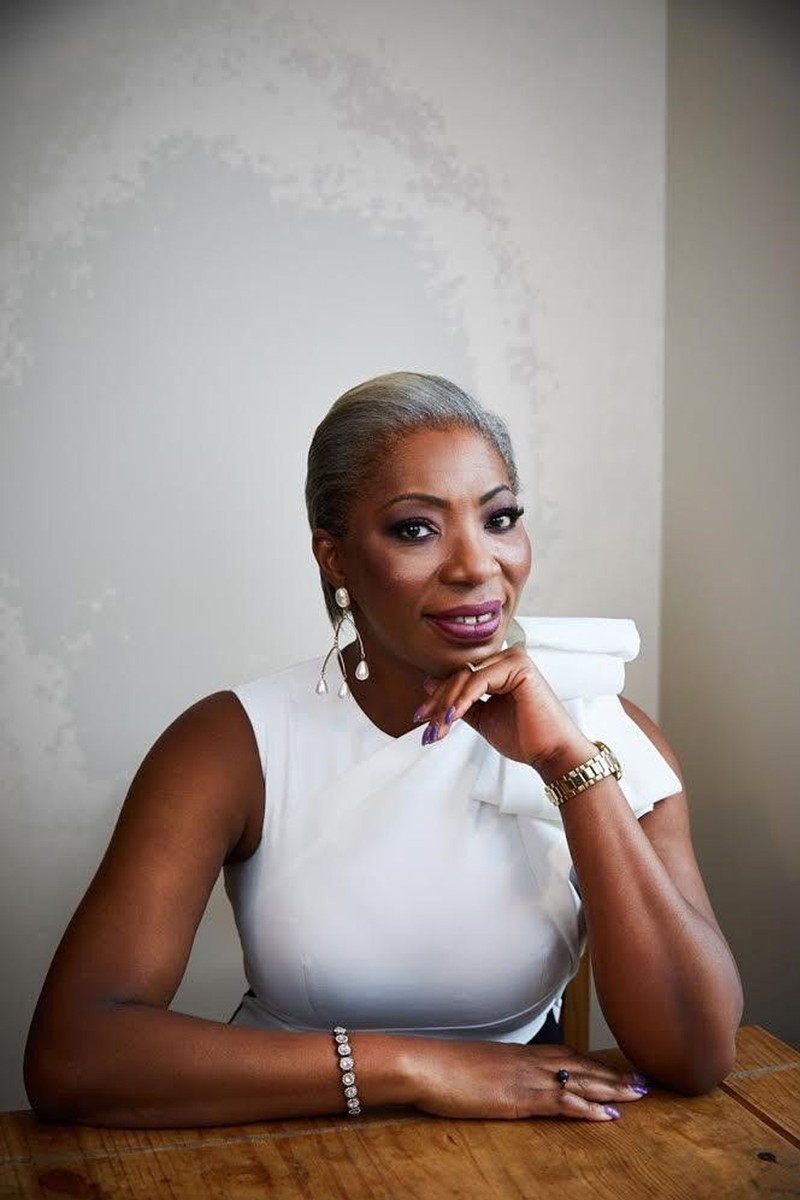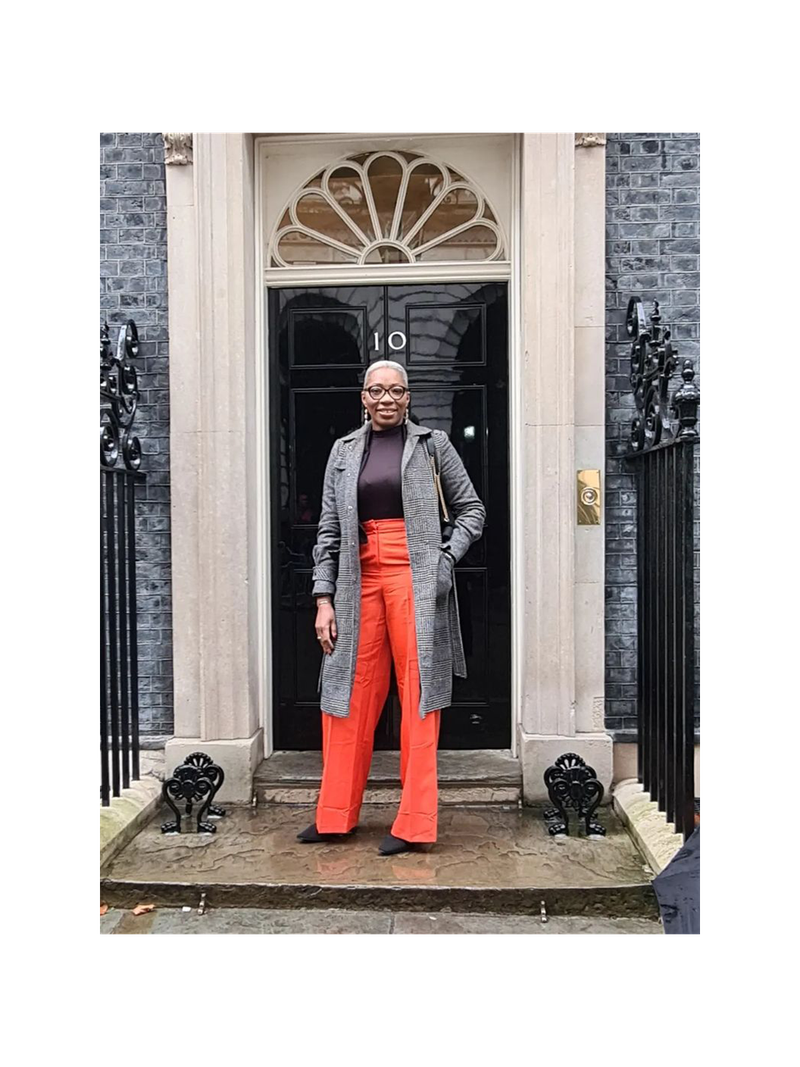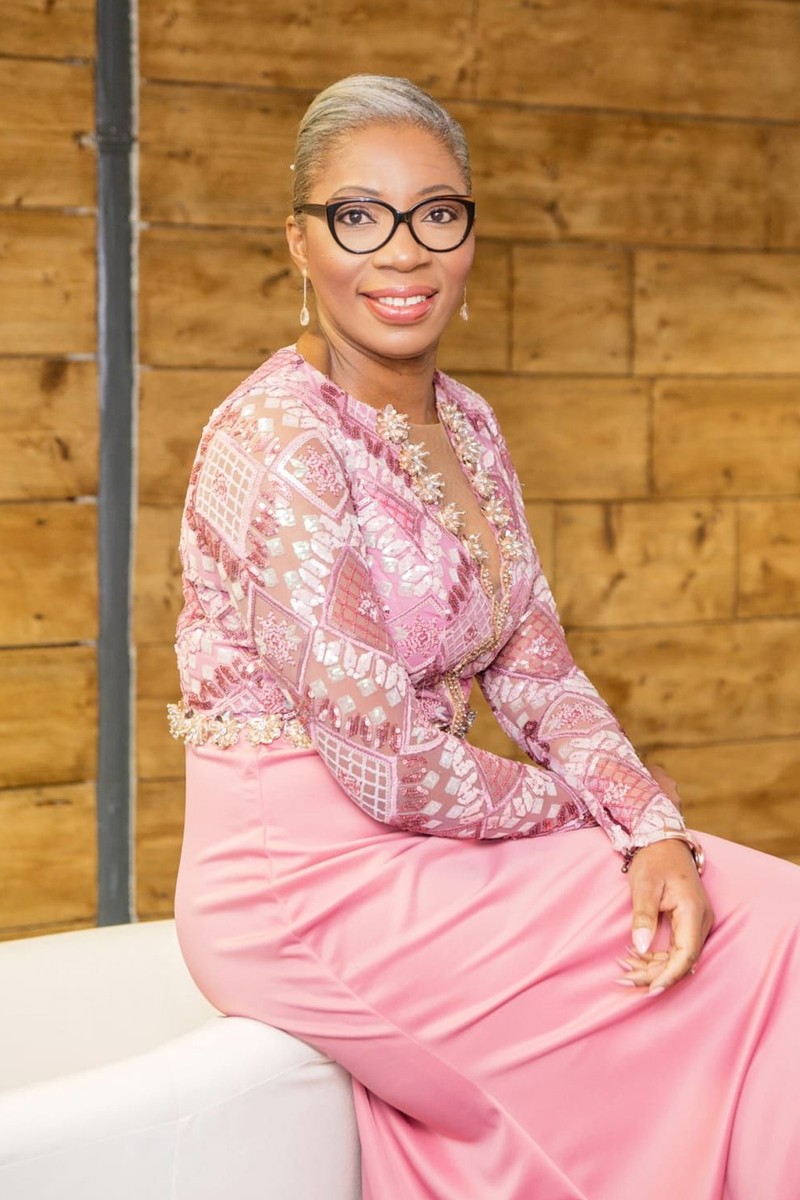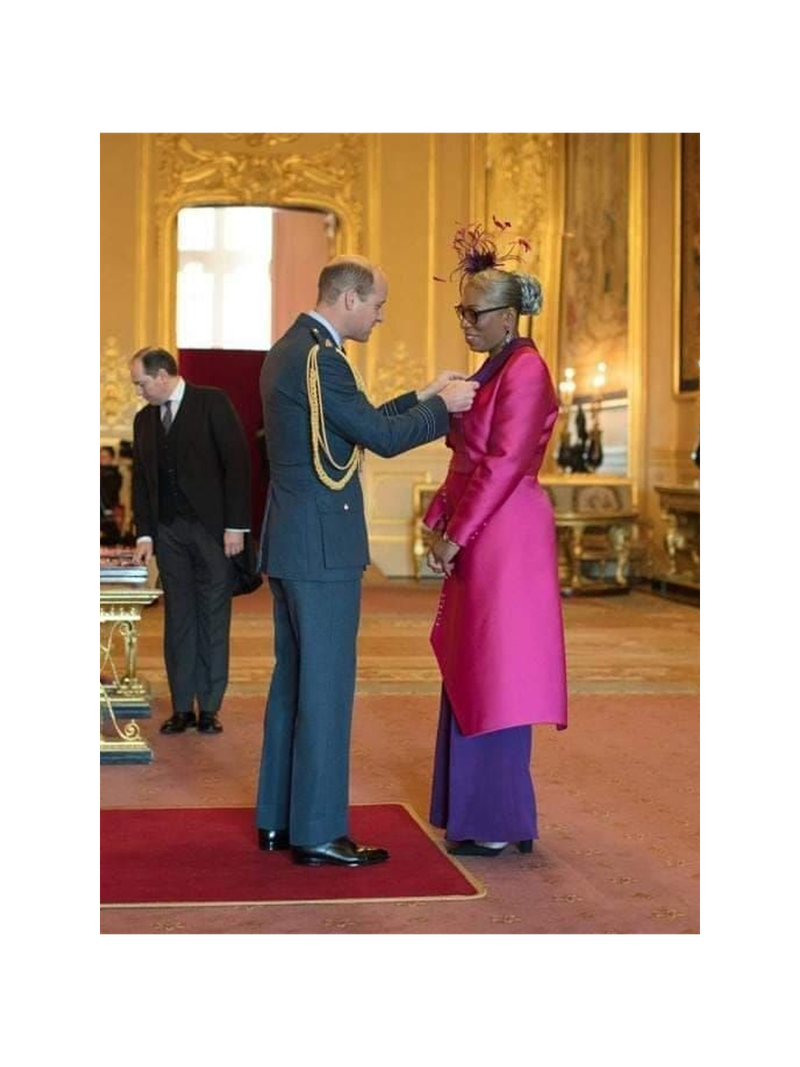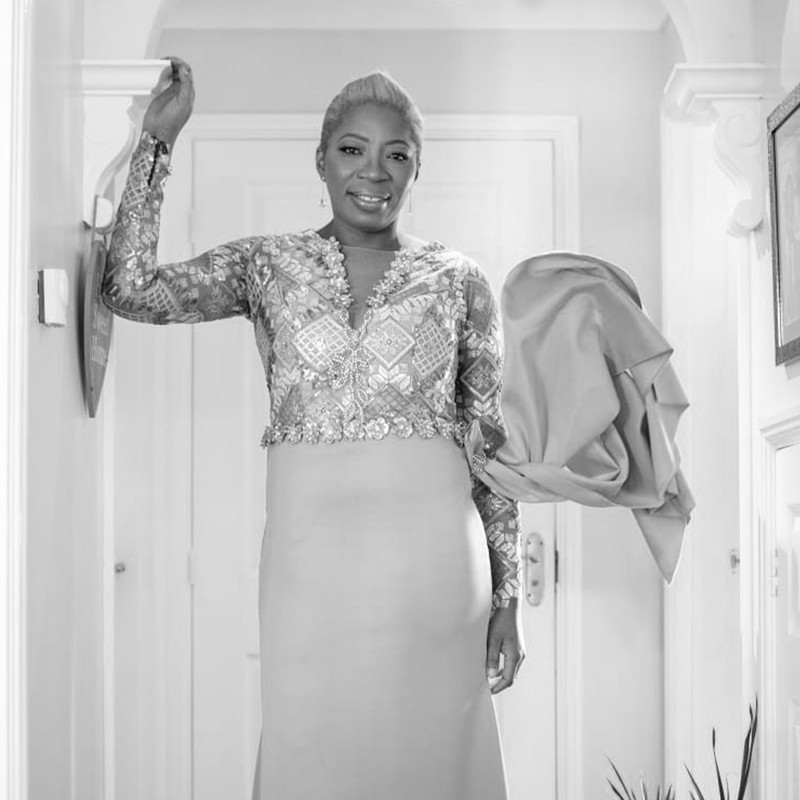
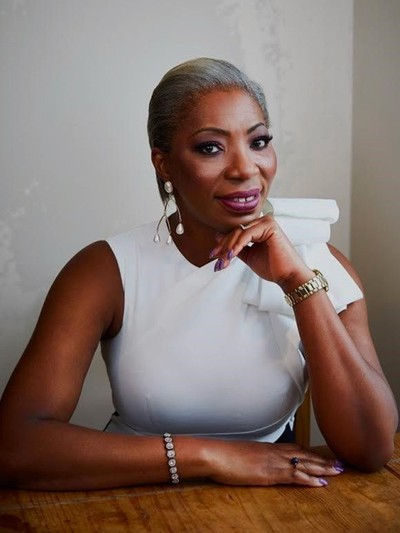
The Gold Edition Meets… Tessy Ojo
Giving back has always been a concept close to my heart. As a child, I didn’t have the right language to know what that was, but my father always said I was very curious about why certain people had things that other people didn’t or couldn’t have. I was very interested in the inequalities of life – which I think comes from being the child of a diplomat who had many privileges. Then, when I was 13, I realised I had access to so many after-school clubs that other children didn’t. My mother was a head teacher and I told her I wanted to run after-school clubs at her school for children who couldn’t otherwise access them. What turned into one day a week quickly turned into four.
At 14, I found out my best friend’s brother had sickle cell anaemia. Suddenly, the idea of healthcare inequality was very present in my life and it inspired me to go on and study biochemistry to help to find cures to rare diseases. I just wanted to help make people’s lives better in any way I could and I think it’s that motive that has always been with me – rather than envisioning my life purely in the charity sector.
Shortly after I qualified as a biochemist, I realised I hated being in a lab. I loved the rigour of study, but I knew I was too much of a people person to be isolated in that way. The dream and the reality had turned out to be quite different, and my brother suggested I did an MBA to keep my horizons broad. That’s how I ended up in the tech industry in the late 90s. It was a burgeoning industry and I was hopeful we’d be able to find solutions that would really help people. A few years later, though, I realised I was further from my mission than ever before and I needed to change something.
Having my second child gave me a moment to think about what I wanted to do. I stumbled upon an advert for a new youth charity that was looking for someone to develop their business systems. I wrote to them and offered what was left of my maternity leave – four or so months – to help them do just that. They rejected my offer because they needed to retain someone long term, but that’s what I eventually decided to do. I knew I couldn’t miss this chance to potentially have a positive impact on the lives of so many young people.
That charity turned out to be The Diana Award. They’d only been going seven months when I joined as the third member of staff. The beauty of it was the charity was a completely blank slate – the only thing we were briefed to do was capturing the values of the late Princess of Wales and finding a way to instil those values in the minds of younger generations to help them reach their potential. A lot of that long-term planning fell to me in the early days and eventually I took on roles like financial management and fundraising, too.
Because the awards were given out retrospectively, we quickly started to build a body of alumni. Nurturing and supporting these young people moving forward became an equally important mission for us, and we suddenly felt the charity growing and expanding in its scope. I’ve always been interested in the ‘user journey’ so to speak, so I’ve always wanted to know what our young people want and need from us.
In 2011, a change of government marked a big change for the charity. They took the stance that every charity should be self-sustaining instead of supported by government endowment. By this point, we’d grown to roughly nine employees but, as a result, we had to shrink back to four. Fundraising became a top priority and we had to understand our core business better than we ever had before. It was the same year I became chief executive and I relied heavily on my MBA training during this period, which taught me businesses did sometimes have to shrink to survive long term. Today we’re a team of about 70.
Young people are still critical to our work, which falls into three thematic areas: mental health, social and economic barriers and leadership. Young people can’t change the world if they’re mentally unwell and, post-pandemic, a lot of them are struggling. Until you identify a problem, you can’t find a solution, which is why we do a lot of work around early prevention and support; and we’re also looking at how barriers like racial inequality affect both of these things. As the third pillar, leadership is really our driving mission – we want to find young people who are moving the dial in their communities and invest in them, so they grow into confident citizens.
As a woman of colour, I try not to act as any kind of representative. The reason is the spectrum of racial experience is enormously broad and we need people from all kinds of backgrounds to be represented at the highest levels. We must never be in a place where only one kind of representation exists – I can’t speak for the entire Black community, and our community is so vast that it’s imperative that our team also reflects that. Diversity is what enhances everything – not tokenism.
Receiving my CBE was completely surreal. I was quite used to receiving emails from the Honours committee because they would tend to get in touch annually to see if there was anyone I was interested in nominating. So, when an email dropped into my inbox early on in the pandemic notifying that I’d been awarded a CBE, I didn’t really understand. I had to forward it to my husband to double check I’d read it right! My head just wasn’t computing.
Next year will mark our 25th anniversary. Diana, Princess of Wales, left big shoes for us to fill but I hold onto the idea that she was a very quiet positive disrupter. She never shouted about her philanthropic work, but she was never afraid to go to where the pain was – whether it was comforting someone with HIV or working on eradicating landmines in Angola. Today, we try to work in exactly the same way: identifying where the pain or problem is and finding solutions to make people’s lives better. That’s her legacy.
The awards usually take place on 1st July to tie in with the late Princess’s birthday. But every two years we have the special Legacy Awards, which are only handed out to 20 people across the world, compared to the 150-200 Diana Award winners. While the Diana Awards will be given out this July as normal, I’m very excited about next year’s Legacy Awards and we’ll also spend the entire month of July 2024 really celebrating Diana’s legacy and values, as well as the brilliance of young people.
Our work with young people has sustainability at its core. A lot of people think sustainable work is all about initiatives that directly benefit the environment but, for us, it’s about investing in future generations to ensure they have the confidence, knowledge and resources to continue making a difference in this world and preserving what’s already here.
Just because my day job is running The Diana Award doesn’t mean my desire to give back ends there. If you really want to make a difference and instil values of compassion and selflessness, I believe you have to be offering your services to those who need them without compensation attached. I want to serve just like the young people in our communities are doing and put our money where our mouth is. That’s why I work with Comic Relief and a couple of other boards – for me, it’s important to experience different ways of working so I can do better at The Diana Award. I’ve also launched Tessy’s Brunches – which offer female entrepreneurs and businesspeople the space to meet like-minded women and share information and knowledge so they can overcome any barriers they might be facing. I want all women in business to feel seen – so being able to play a part in bridging that gap really excites me. There is no age limit, either. If you want to be part of the conversation and community, then you can be.
Anyone keen to support The Diana Award should definitely get in touch. We’re always looking for mentors and all the details about that can be found on our website. Equally, fundraising is so important – we have waitlists with hundreds of people waiting to access our services but, without proper funding, we can’t hire enough people to serve them. Again, anyone keen to support should visit our fundraising page to find out more and help us make magic happen.
Visit Diana-Award.org.uk
DISCLAIMER: We endeavour to always credit the correct original source of every image we use. If you think a credit may be incorrect, please contact us at info@sheerluxe.com.
